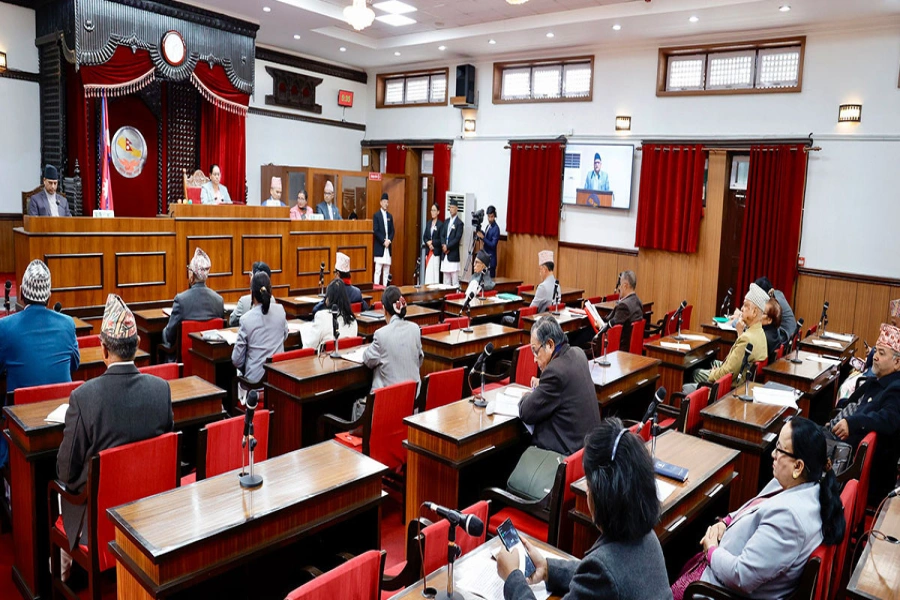Empty rhetoric that ignores economic reality and common sense will not help the planet
STOCKHOLM – Earlier this month, the UK parliament declared that the planet is facing a “climate emergency,” making the United Kingdom the first country to do so after cities like Los Angeles, London, Vancouver, and Basel. It’s a move that sums up all that is wrong with climate policy: politicians are making grandiose, fear-mongering declarations that are divorced from economic reality, as well as from what will fix the problem they claim to be addressing.
Political rhetoric is cheap, but drastic cuts in carbon dioxide emissions remain prohibitively expensive and technologically challenging. After all, emissions cuts have been promised (and mostly not delivered) since the “Earth Summit” in Rio de Janeiro in 1992.
Cutting CO2 emissions to net zero by 2050 or much sooner is the ambitious goal being pushed by environmental protesters like Extinction Rebellion and endorsed by politicians around the world, including several US presidential candidates. These protesters and politicians get a lot of attention, but their proposals would incur far higher costs than almost any electorate is willing to pay.
Although opinion polls show that people care about climate change and want to spend a relatively modest amount to fix it, they want more spent on education, health, job opportunities, and social support. Most Americans, for example, are willing to pay up to $200 per year to fight climate change; in China, the amount is about $30. Britons are unwilling to cut their driving, flying, and meat consumption significantly in order to combat climate change. And although the German government prioritizes climate action so highly that it convened a “climate cabinet,” just one-third of Germans support a controversial proposed tax to reduce global warming.
The gulf between politicians and citizens is most apparent in France. The government vowed to cut CO2 emissions sharply by 2050—but, embarrassingly, this has turned into an empty promise, with almost no meaningful measures enacted under President Emmanuel Macron. That’s because the “Yellow Vest” protest movement took to the streets to push back against the government’s fuel price surcharges, which disproportionately hit car-dependent people in rural areas.
Let’s live and let live

France is not alone in neglecting its lofty promises. Recent analysis shows that of the 185 countries that have ratified the 2015 Paris climate agreement, just 17—including Algeria and Samoa—are actually meeting their commitments.
Achieving net-zero emissions wouldn’t just cost a little more than people are willing to pay, but an order of magnitude more. The main economic models assessing the European Union’s plan to reduce emissions by “merely” 80 percent by 2050, for example, estimate average annual costs of at least $1.4 trillion. And Mexico’s relatively unambitious pledge to cut its emissions by 50 percent by 2050 will likely cost 7-15 percent of GDP.
A report commissioned by New Zealand’s government to study its promise of carbon neutrality by 2050 found that the annual cost of meeting this target in 2050 and each subsequent year would be higher than the country’s entire current annual budget. Moreover, this estimate assumes that policies are implemented as efficiently as possible. In reality, no government manages to do that—so the cost of becoming carbon neutral could easily double. (The New Zealand government is steaming ahead with its policy regardless.)
The costs of deep emissions cuts are so high because we are all utterly reliant on fossil fuels. Green-energy alternatives, including solar and wind, are generally not ready to compete. As a result, policies forcing people and businesses to shift to immature technologies will slow growth and exacerbate energy poverty.
This is also why the world is much further behind in its “energy transition” than most people realize. Solar and wind together currently deliver about 1 percent of global energy, and the International Energy Agency estimates this will reach only 4.1 percent by 2040. Vaclav Smil, who is Bill Gates’s favorite energy expert, says that “claims of a rapid transition to a zero-carbon society are plain nonsense,” adding that “even a greatly accelerated shift toward renewables would not be able to relegate fossil fuels to minority contributors to the global energy supply anytime soon, certainly not by 2050.”
Many of today’s panicky political declarations and climate protests are driven by the widespread belief that the United Nations Intergovernmental Panel on Climate Change (IPCC) told us we have just 12 years left to save the planet. This is at best a fundamental misunderstanding of what the IPCC said. The panel was asked to establish which policies would be needed to achieve the nearly impossible target of keeping temperature rises under 1.5°C. The IPCC answered that this would indeed be almost impossible, requiring a total economic transformation in 12 years.
In fact, the IPCC’s last major report said that if we do nothing to stop climate change, the impact will be equivalent to a reduction in overall incomes of 0.2-2 percent by the 2070s—similar to the effect of one economic recession.
Instead of pursuing costly and unrealistic emission-reduction targets, we should respond to climate change by getting the price of future green energy below that of fossil fuels so that everyone can afford to switch. A true transition requires investment in green-energy research and development.
Copenhagen Consensus, the center I lead, previously assembled an expert panel of economists, including three Nobel laureates, to discuss solutions to climate change. The panel concluded that R&D spending on green energy should be dramatically increased, to 0.2 percent of global GDP. This would be a less economically painful and much more effective way to solve the climate problem.
Declaring a “climate emergency” generates headlines and makes politicians and activists feel better. But empty rhetoric that ignores economic reality and common sense will not help the planet.
Bjørn Lomborg, a visiting professor at the Copenhagen Business School, is Director of the Copenhagen Consensus Center.
© 2019, Project Syndicate
www.project-syndicate.org




































